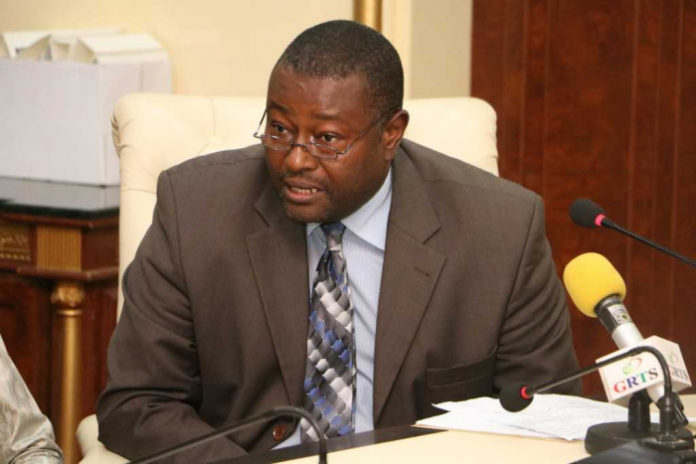National Human Rights Commission has called on the government to consider and implement its recommendations to ensure that persons with disabilities enjoy a life of dignity and respect and can participate actively in the life of the country.
The Gambia today joins the rest of the world to commemorate International Day of Persons with Disabilities (IDPD) which is observed on 3 December, since 1992, to promote an understanding of disability issues and to urge States, as primary duty bearers, to fulfill their obligations towards persons with disabilities, especially their integration in all aspect of society and full and equal participation in political, economic, social and cultural spheres.
The theme for this year’s commemoration, “Building Back Better: toward a disability-inclusive, accessible and sustainable post-COVID-19 World”.
NHRC in a statement said there is no gainsaying the fact that the group of society tremendously affected by the devastating impact of COVID-19 is persons with disabilities, in particular the elderly, women, and children with disabilities.
“The state of public emergency, the restrictions placed on the movement of people, the social distancing guidelines, isolation measures, and the closure of the majority of businesses all had a negative impact on persons with disabilities,” NHRC said.
“Persons with disabilities in The Gambia continue to face lots of challenges and impediments in the enjoyment of their fundamental human rights, exacerbated by discrimination, stigmatization, economic disempowerment, limited access to educational opportunities and facilities, lack of social protection mechanisms to cushion them off the effects of poverty and absence of a legislative framework which articulates their rights and the obligations of the State towards them in line with the Convention on the Rights of Persons with Disabilities.
“Access to mainstream services, public buildings, and public transportation remains a big challenge for persons with disabilities, and which in turn impede their participation in decision making. Thus, unfortunately in The Gambia, and for persons with disabilities, ‘disability remains inability’,” NHRC said.
In line with its mandate to promote and protect the fundamental rights of all including Persons with Disabilities, the NHRC is taking this opportunity to highlight the need for specific government actions to foster disability-inclusion and fulfillment of the rights of persons with disabilities.
The NHRC urges the government to: expedite the enactment of the Disability Bill, as well as the development of a National Disability Policy, and ensure adequate financial and technical support for their effective implementation; ensure that every child with a disability in every school has access to disability-friendly learning materials, including braille machines, braille cards, audiotape recorders with cassettes and batteries; enhance the capacity of itinerant teachers so that they can meet the educational needs of children with disabilities; take sign language interpretation obligatory for the public television (synchronized television programs) and all public gatherings where speeches or statements would be delivered; provide relief support to persons with disabilities and organisations of persons with disabilities in order to ameliorate the effects of COVID-19 on their lives; put in place measures which would make all public or mainstream services and public buildings accessible to persons with disabilities; build more learning facilities for those children with disabilities whose special conditions and needs will make their integration in mainstream education difficult, especially in the rural Gambia where no such currently facility exists; put in place measures to enhance the economic empowerment of women with disabilities, protect them from all forms of gender-based violence and facilitate the access of girls with disabilities to education; put in place measures which would facilitate and guarantee the participation of persons with disabilities in national development and discourses; advise the Independent Electoral Commission to ensure the electoral voting process is inclusive and accommodates the needs of persons with disabilities; sign and ratify the AU Convention on the Rights of Persons with disabilities in Africa, and domesticate thereafter; [and] popularize and implement the Regional Action Plan on Albinism in Africa adopted by the Executive Council of the AU in July 2019;




